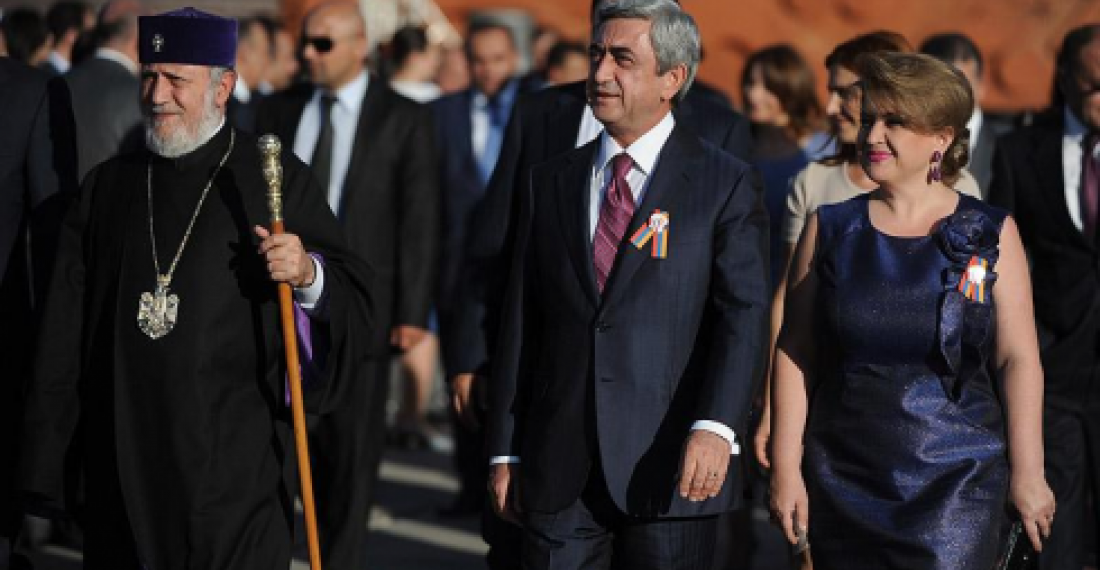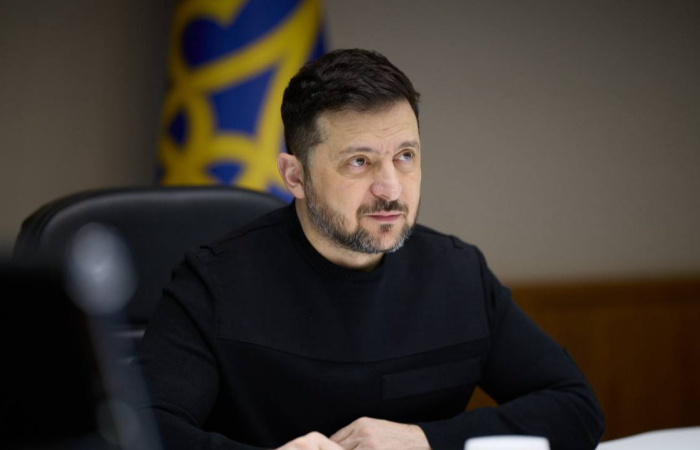Armenia has started the celebrations to mark the 20th anniversary of its independence with a concert and reception for local and foreign dignitaries at the Sartarabat Memorial.
In his address at the event, Armenian President Serzh Sargsyan said that the anniversary was a magnificent holiday, but also "a solemn occasion to reckon over our twenty-year long journey, tasks before us and our vision of the future. The gist of the day is our ability to pass on to the generations values and legacy which were left to us by those who had created, defended and nurtured a free and independent Armenia with their sweat and blood".
The President added that Armenia is a home to over three millions Armenian citizens to the millions of Armenians spread all over the world.
The celebrations are expected to continue over the coming week.
source: commonspace.eu
photo: President Sargsyan arrives at the Sartarabat Memorial for the start of the independence day celebrations (picture courtesy of www.president.am)







